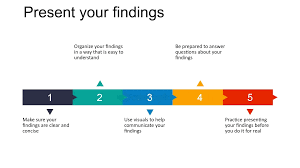Welcome to our comprehensive guide on kickstarting your startup journey. Market research is a critical step in building a solid foundation for your startup. By conducting thorough market research, you gain valuable insights into your target audience, competitors, and industry trends. In this article, we will walk you through the five essential steps to effectively conduct market research for your startup. From defining your research objectives to analyzing data and making informed decisions, these steps will equip you with the knowledge needed to drive your startup towards success.
Step 1: Define Your Research Objectives
“Without data, you’re just another person with an opinion.” – W. Edwards Deming
Before diving into market research, it is essential to define your research objectives. Clarify what specific information you need to gather and the goals you want to achieve through your research. By clearly defining your objectives, you can focus your efforts and ensure that the research aligns with your startup’s overall vision and strategy.
Step 2: Identify Your Target Audience
“The aim of marketing is to know and understand the customer so well that the product or service fits them perfectly and sells itself.” – Peter Drucker
Identifying your target audience is a crucial step in market research. Define the demographics, psychographics, and behaviors of your ideal customers. This information will help you tailor your products, services, and marketing efforts to meet their needs effectively. Conduct surveys, interviews, or utilize online tools to gather insights and understand your target audience on a deeper level.
Step 3: Choose the Right Research Methods
“You can have data without information, but you cannot have information without data.” – Daniel Keys Moran
Selecting the appropriate research methods is essential for collecting accurate and relevant data. Consider using a combination of quantitative and qualitative research methods such as surveys, focus groups, interviews, and data analysis. Each method provides unique insights that will help you understand your target audience, market trends, and competitors.
Step 4: Collect and Analyze Data
“Data beats emotions.” – Sean Rad
Collecting data is just the first step; the real value lies in analyzing it effectively. Use data analysis tools and techniques to make sense of the information you’ve gathered. Identify patterns, trends, and correlations that can inform your business decisions. Data-driven insights will guide you in developing effective marketing strategies, improving your product offerings, and staying ahead of the competition.
Step 5: Make Informed Decisions
“The best way to predict the future is to create it.” – Peter Drucker
Based on the insights gained from your market research, it’s time to make informed decisions for your startup. Use the data and analysis to refine your target audience, validate your product-market fit, and fine-tune your marketing strategies. By leveraging market research, you can reduce risks and increase the chances of success for your startup.
Conducting thorough market research is an essential step in kickstarting your startup journey. By defining research objectives, identifying your target audience, selecting the right research methods, collecting and analyzing data, and making informed decisions, you will gain valuable insights into your market and set a solid foundation for your startup’s success. Remember, market research is an ongoing process. Continuously monitor market trends, adapt your strategies, and stay connected with your target audience to ensure your startup remains competitive and responsive to their evolving needs.
Stay updated with the latest in the startup world through our Startup News and Funding Alert. Sections. Explore Founder Profiles, Startup Profile, Founders Interview, Success Stories. In-depth Insights articles, Resources, and How to. Follow us on Facebook, Twitter, Instagram and LinkedIn for regular updates.


